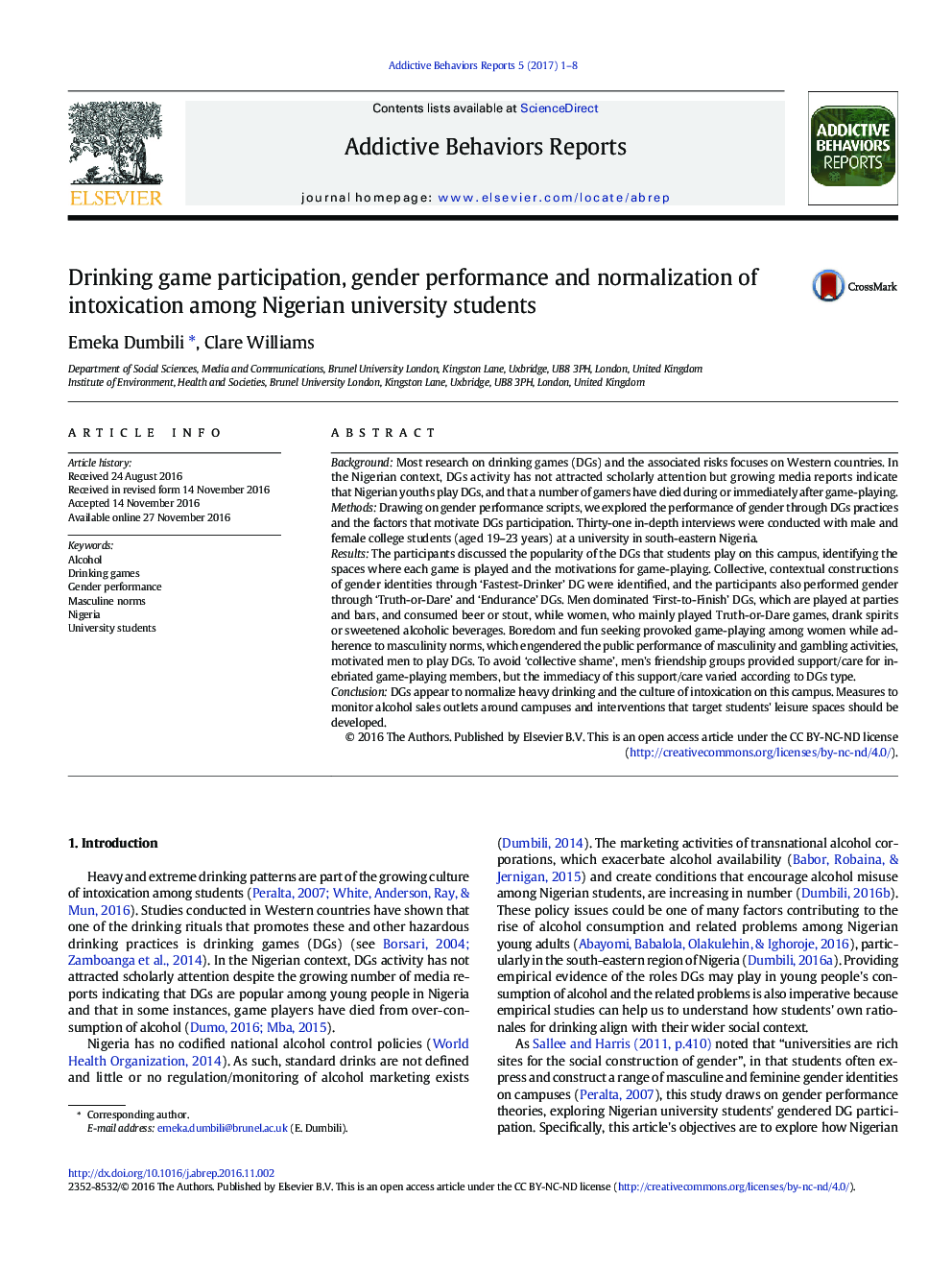| Article ID | Journal | Published Year | Pages | File Type |
|---|---|---|---|---|
| 5037949 | Addictive Behaviors Reports | 2017 | 8 Pages |
â¢First study to explore the roles drinking games play in alcohol consumption of Nigerian studentsâ¢Reveals collective and contextual gender performance through drinking games practicesâ¢Reveals that drinking games participation and alcoholic beverages consumed during games are genderedâ¢Reveals necessity for alcohol control measures to be developed and implemented
BackgroundMost research on drinking games (DGs) and the associated risks focuses on Western countries. In the Nigerian context, DGs activity has not attracted scholarly attention but growing media reports indicate that Nigerian youths play DGs, and that a number of gamers have died during or immediately after game-playing.MethodsDrawing on gender performance scripts, we explored the performance of gender through DGs practices and the factors that motivate DGs participation. Thirty-one in-depth interviews were conducted with male and female college students (aged 19-23Â years) at a university in south-eastern Nigeria.ResultsThe participants discussed the popularity of the DGs that students play on this campus, identifying the spaces where each game is played and the motivations for game-playing. Collective, contextual constructions of gender identities through 'Fastest-Drinker' DG were identified, and the participants also performed gender through 'Truth-or-Dare' and 'Endurance' DGs. Men dominated 'First-to-Finish' DGs, which are played at parties and bars, and consumed beer or stout, while women, who mainly played Truth-or-Dare games, drank spirits or sweetened alcoholic beverages. Boredom and fun seeking provoked game-playing among women while adherence to masculinity norms, which engendered the public performance of masculinity and gambling activities, motivated men to play DGs. To avoid 'collective shame', men's friendship groups provided support/care for inebriated game-playing members, but the immediacy of this support/care varied according to DGs type.ConclusionDGs appear to normalize heavy drinking and the culture of intoxication on this campus. Measures to monitor alcohol sales outlets around campuses and interventions that target students' leisure spaces should be developed.
